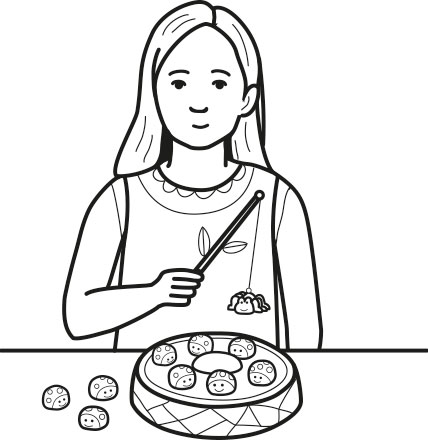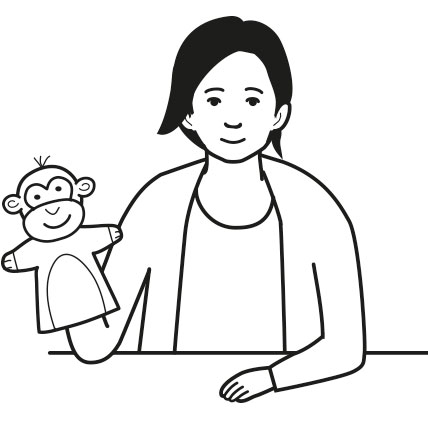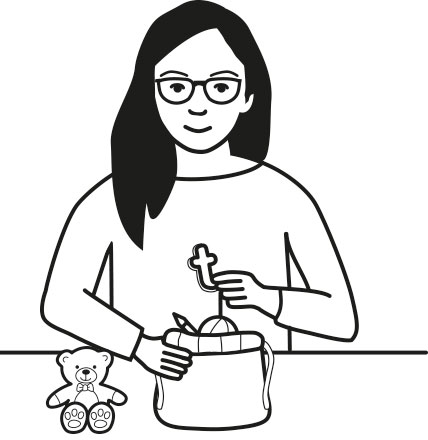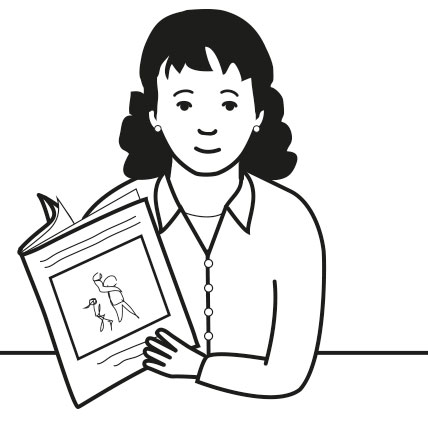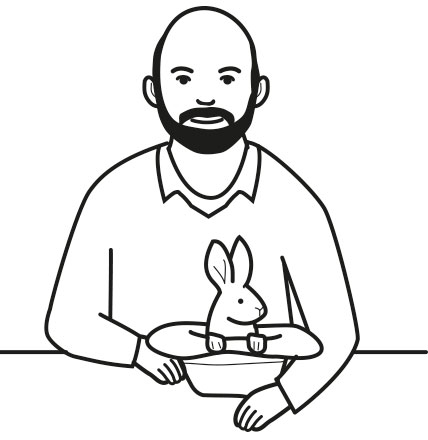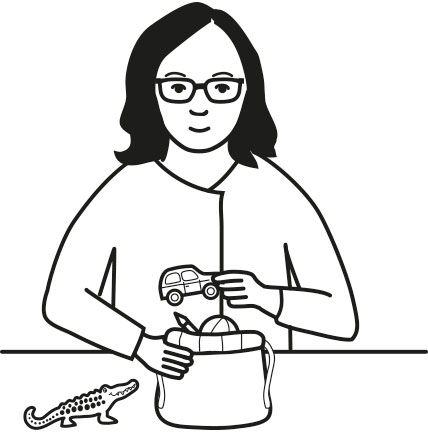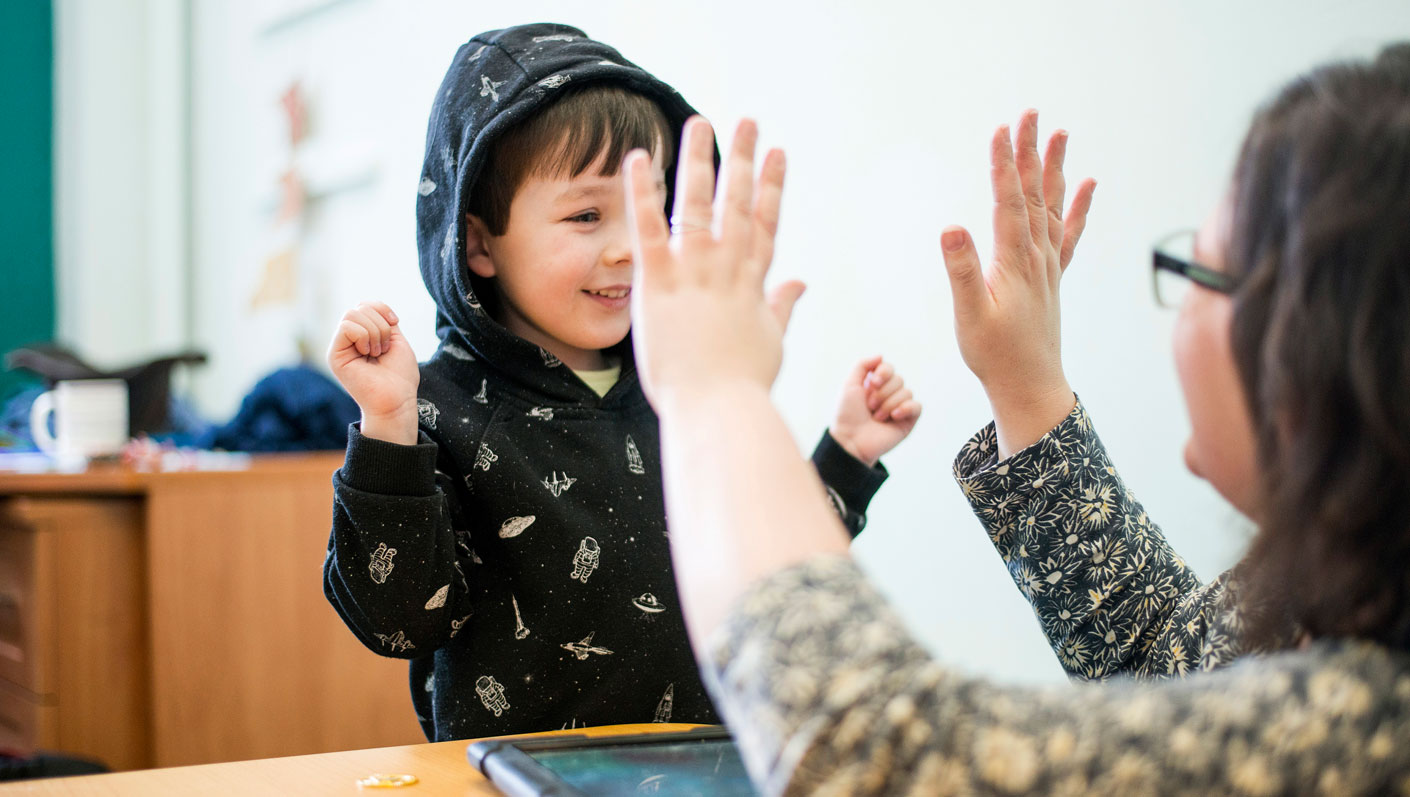
When a child has speech sound difficulties which make it hard to understand them it can be really frustrating for the child and those who look after them.
For some children, therapy can bring about a big improvement in clarity fairly quickly but for others it will take longer.
Here are some things you can do to help in the meantime:
(1) Information is key! Knowing in advance the things a child is likely to talk about (the names of their family members, pets, friends, favourite TV programmes, toys, cartoon characters, places they go regularly) can make a huge difference. If you are a parent, you could make a list for your child’s teacher or key worker or even better make a small photo book with your child to take in and share.
(2) Encourage the child to use pointing, gestures, taking you to the thing they are talking about, mime, find a picture, to back up their speech (all those things you do when on holiday in a country where you don’t speak the language!). If you do these things when you talk, the child is more likely to do the same when they talk.
Some children will also be helped by learning some simple sign language (e.g. Makaton) to support them while they are working on their speech.
(3) Find out about any patterns in the child’s speech as this can really help you work out what they might be saying e.g. a child that comes to mind has an unusual pattern where ‘m’ ‘p’ and ‘b’ are replaced with ‘g’. Once you know this when they say, “guy gall” you can try putting m/p/b in instead and work out they are saying “my ball”!
(4) Even when a child isn’t able to copy the correct version when you say it to them, it is still helpful for them to HEAR how a word should sound. Therefore try and repeat words back to them in a relaxed and natural way, so they can listen to how it should sound.
So, if a child said, “Can I borrow the didderd?” I might say, “Can you borrow the scissors? Yes of course…here they are…scissors.”
(5) Other children can sometimes help you out. They often tune in better than adults and can tell you what is being said. This is a double-edged sword though as you have to make sure that those children don’t jump in every time!
(6) Narrowing down the topic can help so asking yes / no questions can be helpful e.g. “Is this something that happened at the weekend / home / at break?” “Is it something you saw on TV?”
(7) Having to repeat yourself lots of time is annoying! Therefore try and tell the child everything that you DID understand e.g. “Oh so you went somewhere with Daddy at the weekend and then……” This means they don’t have to say the whole thing again just the bit you didn’t understand.
(8) Share the responsibility for the difficulty understanding “My ears don’t seem to be understanding very well today” and try and end with a plan if you have not been able to work out what they were trying to say:
- Shall we see if (grown up) can help us out when they pick you up?
- Shall I keep thinking about what you were saying and see if I work it out? (this really can help)
- Shall we see if X (friend or sibling) can help us out?
Should I pretend to understand when I haven’t?
Being honest most of us have had to do it at times. However, children seem to spot it a mile off and some get very cross and will wait until you repeat back what they say so they can be sure you have really understood! Whenever you can try some of the suggestions above first.

